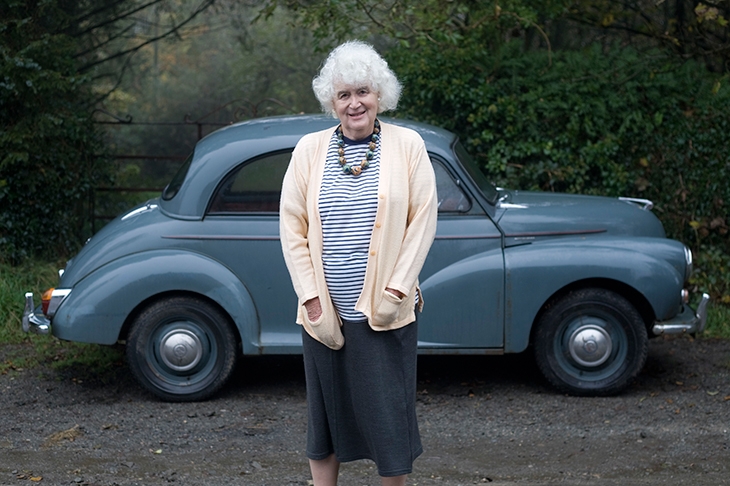To Jan Morris, I am anathema. That goes, too, for David Attenborough. It is a word that this unarguably great writer likes: ‘It rolls well off the tongue.’ Why are your reviewer and the great broadcaster anathema, you ask. Well, we have been to the zoo. In this almost entirely enjoyable book no-one comes in for quite so much disapproval as those of us who have been to the zoo.I mention David because, when I was young, he took me to the zoo. However, despite this sinfulness, I would be surprised if Morris, who is a year older than Attenborough, does not recognise in David a confrère in the war for niceness against nastiness, kindness against cruelty.
This book, apparently written because Morris has ‘nothing much else to write’, is more weighty than it seems. Its 188 very short pieces tell us much about her, and will be a honeypot for her biographer. They are also irresistibly engaging.
Here she is uncorsetted, the great prose stylist conversational (though she has always had a kind of intimacy with her readers), talking to herself as she talks to inanimate objects around her house. Much of the time she is responding to the world beyond Trefan Morys, the house in Lloyd George’s childhood home of Llanystymdwy, on the Llyn peninsula of north Wales, which she shares with her once wife, now civil partner, Elizabeth Tuckniss (they were married in 1949). This great world, the cities, towns and people of which she has so wonderfully recorded, seems to Morris to be descending into chaos. All the news is bad, and things are only going to get worse.
And yet — and here is one of her favourite themes, irony — in her north Wales fastness people are kindly, the garden is bountiful and the mountains are beautiful. I hope it does not seem a cheap jibe to say that Jan Morris, once James Morris, is a philanthrope trapped inside the body of a misanthrope (or possibly vice versa). Her predilection for being hard on mankind and soft on people does suggest something of the condition.
One of her first ‘thoughts’ records a conversation between her conscience and Beelzebub. The latter prevails, but Morris forgives herself, and there is the sense that she forgives the small vices everyone has. And indeed small vices are perhaps necessary in order to make people interesting. Morris’s great virtue is her curiosity. While old age has not stopped her driving or marching her 1,000 paces every morning, she no longer jets about the world (she loved jetting). Instead, she frequently logs onto the internet (she loves her iPad: ‘one of the truly welcome blessings of progress’) to see what’s with the world. When not doing that she indulges in nostalgia, doting on the books of her library, quite often her own books, full of fan letters and newspaper cuttings, flattened under fly leaves. She has time for sentimentality and nostalgia, and the prerogative of the elderly in dismissing what doesn’t engage. One Hundred Years of Solitude fails, but Irving Berlin triumphs.
Music and cats account for many of the thoughts recorded here. Her book about her transition from male to female, Conundrum, begins with an image of herself as a small boy sitting with his cat beneath his mother’s piano. In My Mind’s Eye is haunted by the ghost of Ibsen, Morris’s Norwegian Forest cat, which has recently died. He turns up half a dozen times, clearly a much loved and missed companion.
Most refreshing, most unusual in our increasingly binary world, are the apparent contradictions in her antipathies and enthusiasms: a dislike of monarchy, and an affection for the lost swank of empire; Welsh nationalism and a love of England; mournfulness for the loss of fauna and a profound contempt for sheep; she’s an atheist (‘incredulist’ is her word) who wouldn’t be surprised to find she was wrong.
Finally, a cavil. The front cover shows Morris standing in front of a Morris Minor. Perhaps this is a pun of some sort. It is undercut in the very first ‘thought’, which is reported as having been had at the wheel of her Honda Civic Type R, another of the recurring nonhuman characters in this wise and delightful and, on the whole (we who are anathema excepted), kindly collection of acorn-sized essays.






Comments